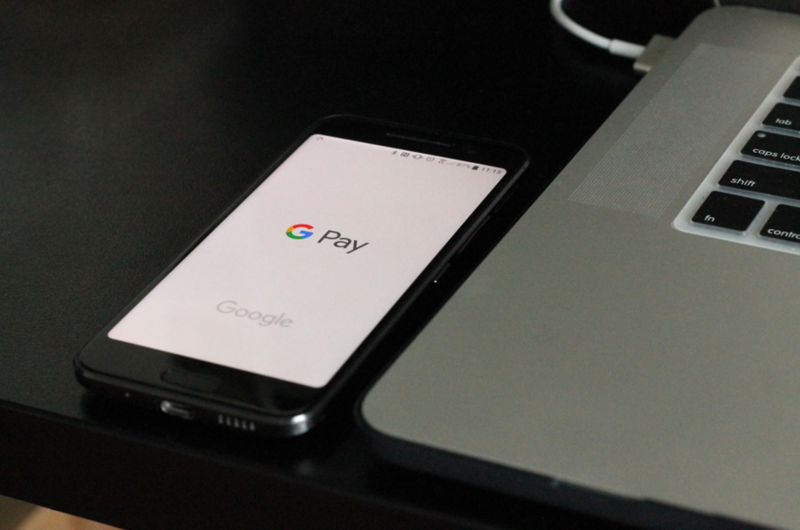Rent Payment Options: Why Online Payments Will Now Dominate

By Laurie Mega
Even before the coronavirus outbreak, rental payments were going through something of a revolution. The once ubiquitous check or money order has been giving way to more secure and immediate forms of payment, from credit cards to payment apps to online portals.
There were several reasons for this, from sheer convenience to security, to the demand for mobile availability from millennials and Gen Z. The current pandemic is now the straw that broke the camel’s back.
As property managers search for ways to keep their businesses running and their residents happy while practicing social distancing, mobile and electronic payment options are becoming a more appealing choice over paper checks, money orders, and cash that requires interactions with residents, bankers, and postal workers.
So will online rent payments eliminate more traditional options? We think they just may.
The Pros and Cons of Traditional Rent Payment Options
Traditional rental payments are still popular, especially with certain demographics.
Cash, Check, or Money Order
In a 2014 study by the Federal Reserve Bank of Boston, the most recent data, 22 percent of American renters paid with cash, 43 percent paid with check, and 16 percent paid with a money order.
In a 2017 survey, the FDIC found that 25 percent of Americans either don’t have a bank account or use financial services outside their bank account to make payments. And half of them said it was because they don’t have enough money to keep a minimum balance.
Paying with cash or purchasing a money order are still go-to methods of paying the rent with low-income renters. Or they may pay through a walk-in payment system (WIPS) available at many chains or big box stores.
With a WIPS, residents pay in cash at a participating store. The store then transfers the money directly to the property manager.
For residents who do have bank accounts, money orders and certified or cashier’s checks have traditionally been preferable for both property managers and residents.
Both cashier’s and certified checks are guaranteed by the bank that issues them, which means they won’t bounce. Money orders also guarantee funds. All of these methods are trackable, so there can be no dispute overpayment.
The Disadvantages of Traditional Payment Methods
All of these payment options may serve your residents best. But there are disadvantages for both residents and property managers with each of these.
First, cash is hard to trace. Even with banking statements and deposit slips, it’s easy to lose track of cash payments, especially if you’re getting the same cash amount for multiple tenants. There’s no name or check number attached to cash, after all.
Personal checks can bounce. And certified or cashier’s checks can be a hassle to obtain and cost your residents extra money (up to $10 per check). Money orders, too, cost a little bit extra (up to $5 per order), and as with WIPS, your residents have to go to a physical location to get one.
Traditional Payments and COVID-19
And that’s the final nail in the coffin for payments of these types. They have to be made in person or sent through either a store, a bank, or the mail.
Experts now fear a second virus spike could happen in the fall and winter of this year. And a vaccine will not be available to the public for at least a year, by researchers’ best estimates.
That means social distancing will remain the norm for some time to come. The fewer residents and property managers have to come in contact with each other, the better. And rent payments is one area where property managers can proactively reduce infection risk.
Electronic Payment Options
Electronic payment options eliminate the need for contact. But there are some facts.
Credit or Debit Card
In April 2020, credit card payments for rent were up 30 percent over the previous month as people avoided going out for even the simplest walk to the mailbox.
Credit and debit card payments are indeed becoming a more popular way to pay for rent. Not only is it convenient, but residents with cashback or points cards can benefit from a large, regular charge to their card.
Wire Transfer
Some property managers allow wire transfers, but this isn’t really a good idea. In order for a wire transfer to happen, you would have to share account and bank routing information with your residents.
Online Payment
Millennials now make up a large portion of the rental market, and their preference for online and mobile convenience is well known. At the same time, Gen Z, who have never lived in a world without the internet, are starting to enter the rental market.
These new populations, coupled with the new need to remain socially distant, are driving a surge in popularity with both payment apps and online portals.
There are a whole host of payment apps you can use to charge and collect rent money from tenants, but you should really use a payments platform integrated with your property management system so that you don’t have to rekey entries, eliminating potential mistakes.
Pro Tip: If you use a payment app for rent, spell out in the lease which app you use, what the service charge is, and how that affects the rent.
You may even want to look into an online portal for charging and accepting rent. Online solutions such as Propertyware handle rent payments seamlessly while providing a whole host of other services for residents, owners, and property managers.
You can use them to sign and store lease agreements and other documents, track work orders, send messages to residents, and the PMC can even interact with owners through their own portal.
There will still be resident populations who will use more traditional forms of rent payment. But as younger renters flood the market and the current pandemic continues to act as a catalyst for change, online payments just may replace check, cash, and money orders as the principal way residents pay for rent.







